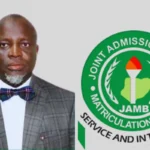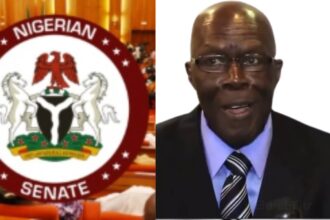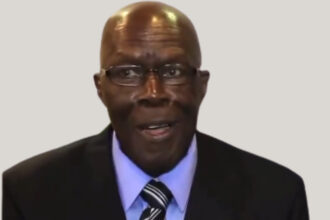The Aburi Accord is one of the most significant yet controversial events in Nigerian history. It marked a pivotal moment in the lead-up to the Nigerian Civil War (1967–1970), also known as the Biafran War. This article provides a detailed account of the events surrounding the accord, the key dignitaries involved, the agreements reached, and the reasons for its failure, shedding light on a critical chapter in Nigeria’s political evolution.
What Was the Aburi Accord?
The Aburi Accord refers to a series of peace talks held from January 4 to January 5, 1967, in Aburi, Ghana. The meeting was convened to resolve the political and ethnic tensions that had escalated in Nigeria following the military coups of 1966 and the subsequent massacres of Igbo people in the northern region.
The accord aimed to address issues of governance, power-sharing, and the autonomy of regions to prevent a total breakdown of the Nigerian state.
Location: Aburi, Ghana
The talks were hosted at the Peduase Lodge in Aburi, a serene town in the Eastern Region of Ghana. The location was chosen to ensure a neutral and peaceful environment away from the escalating tensions in Nigeria. Ghana’s Head of State, Lieutenant General Joseph Arthur Ankrah, facilitated the discussions, offering Ghana as a venue for reconciliation.
Dignitaries in Attendance
The meeting brought together key figures in Nigerian politics and the military, including:
- Yakubu Gowon: Head of State of Nigeria and leader of the Federal Military Government.
- Chukwuemeka Odumegwu Ojukwu: Military Governor of the Eastern Region and later leader of the secessionist state of Biafra.
- Senior military officers and regional leaders from across Nigeria, representing the Northern, Eastern, Western, and Mid-Western regions.
The Agreements Reached at Aburi
The discussions led to several agreements aimed at decentralizing power and granting greater autonomy to Nigeria’s regions. Key points included:
- Devolution of Power: Each region would have autonomy to manage its own affairs, including control over its military and resources.
- Creation of a Confederation: A loose association of regions with limited powers vested in the Federal Government.
- Resolution of Military Issues: Each region would oversee its own security forces to prevent the concentration of military power in the center.
- Compensation for Losses: Victims of the ethnic violence in the North would be compensated, and efforts would be made to ensure their safety.
- Reconciliation and Peacebuilding: Measures to rebuild trust and unity among Nigeria’s diverse ethnic groups.
These agreements were seen as a framework for a peaceful resolution to Nigeria’s deepening crisis.
Why the Accord Was Not Implemented
Despite the promise of peace, the Aburi Accord was never fully implemented. Key reasons for its failure include:
- Yakubu Gowon’s Reversal: Upon returning to Nigeria, Gowon and his advisers felt that implementing the accord would undermine the authority of the Federal Government. They argued that it essentially dismantled Nigeria’s unity by creating a confederation.
- Pressure from Northern Elites: Many northern leaders opposed the devolution of power, fearing it would weaken their influence over national politics and resources.
- Misinterpretation of Agreements: Both parties interpreted the terms of the accord differently. While Ojukwu saw it as a binding agreement, Gowon viewed it as recommendations subject to further deliberation.
- Ethnic Distrust: The deep-seated mistrust among Nigeria’s ethnic groups made it difficult to build consensus around the terms of the accord.
- Political Ambitions: Both Gowon and Ojukwu were accused of prioritizing their political ambitions over national unity, further straining relations.
The Fallout: The Nigerian Civil War
The failure to implement the Aburi Accord escalated tensions, leading to the secession of the Eastern Region as the Republic of Biafra on May 30, 1967, under Ojukwu’s leadership. This declaration of independence triggered a bloody civil war that lasted for three years, resulting in over a million deaths, primarily from starvation and disease.
Gowon’s Recent Admission
Decades later, Yakubu Gowon acknowledged that he deliberately chose not to implement the Aburi Accord. He justified his decision by arguing that it would have led to the disintegration of Nigeria. However, many critics view this as a missed opportunity to prevent the civil war and its devastating consequences.
Legacy of the Aburi Accord
The Aburi Accord remains a poignant reminder of the challenges of governance in a multi-ethnic state like Nigeria. While it failed to prevent war, it highlighted the need for decentralization and regional autonomy—issues that continue to shape Nigeria’s political discourse today.
The Aburi Accord was a noble attempt to preserve Nigeria’s unity through dialogue and compromise. Its failure underscores the complexities of managing ethnic diversity in a post-colonial state. Understanding its history offers valuable lessons on the importance of trust, inclusivity, and effective leadership in nation-building.
By revisiting the Aburi Accord, we not only honor a critical moment in Nigerian history but also inspire informed discussions on how to navigate the country’s current challenges.

















